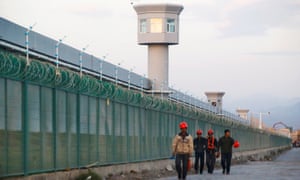ATLANTA — A historian's quest for the truth about a gruesome mob lynching of two black couples is prompting a U.S. appeals court to consider whether federal judges can order grand jury records unsealed in decades-old cases with historical significance.
The young black sharecroppers were being driven along a rural road in the summer of 1946 when they were stopped by a white mob beside the Apalachee River, just over 50 miles east of Atlanta. The mob dragged them out, led them to the riverbank and shot them multiple times. For months the FBI investigated and more than 100 people reportedly testified before a grand jury, but no one was ever indicted in the deaths of Roger and Dorothy Malcom and George and Mae Murray Dorsey at Moore's Ford Bridge in Walton County.
Historian Anthony Pitch wrote a book about the killings — "The Last Lynching: How a Gruesome Mass Murder Rocked a Small Georgia Town" — and continued his research after its 2016 publication. He learned transcripts from the grand jury proceedings, thought to have been destroyed, were stored by the National Archives.
Heeding Pitch's request, a federal judge in 2017 ordered the records unsealed. But the U.S. Department of Justice appealed, arguing grand jury proceedings are secret and should remain sealed.
A three-judge panel of the 11th U.S. Circuit Court of Appeals in February ruled 2-1 to uphold the lower court's order. But the full court voted to rehear the case, and is set to hear oral arguments Tuesday.
Pitch, 80, died just two weeks after the announcement the case would be reheard. His wife, Marion Pitch, has taken her husband's place in the case. Pitch's family also approached Laura Wexler, who wrote another book about the lynching, for help completing his work, and she joined the case.
In 1946, Roger Malcom, 24, was jailed after stabbing and gravely injuring a white man during an argument. A white farmer, Loy Harrison, paid $600 to bail Malcom out on July 25 of that year. Harrison later said he was ambushed by a mob as he drove the four home. Harrison, who is identified in an FBI report as a former Ku Klux Klansman and well-known bootlegger, wasn't hurt. He told authorities he didn't recognize anyone in the mob.
The investigation has been reopened and closed several times since a grand jury failed to indict anyone in December 1946. Students, researchers and activists have all tried to crack the case.
Rules governing grand jury secrecy include exceptions when records may be released. A 1984 ruling in the 11th Circuit, which set binding precedent, says judges may order their disclosure in "exceptional circumstances." The historical significance in this case qualifies, Judge Charles Wilson wrote in the panel's majority opinion. He added that enough time has passed that witnesses, suspects or their immediate family members likely aren't alive to be intimidated, persecuted or arrested.
Concurring, Judge Adalberto Jordan agreed that lower court's ruling should be upheld because of the binding precedent. But Jordan said he would have decided the 1984 case differently. Allowing judges to use inherent authority to go beyond the defined exceptions to grand jury secrecy seems too open-ended, he wrote.

